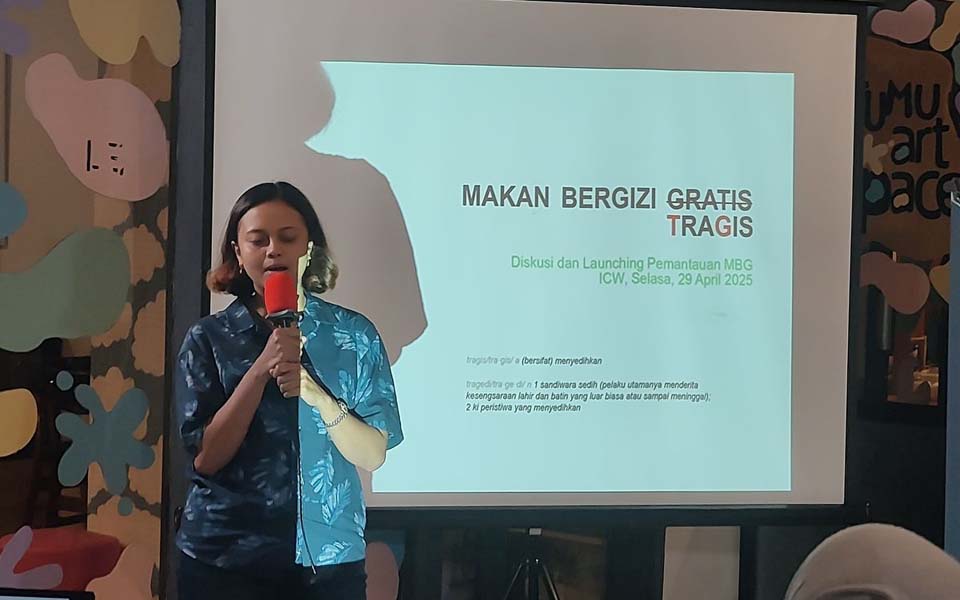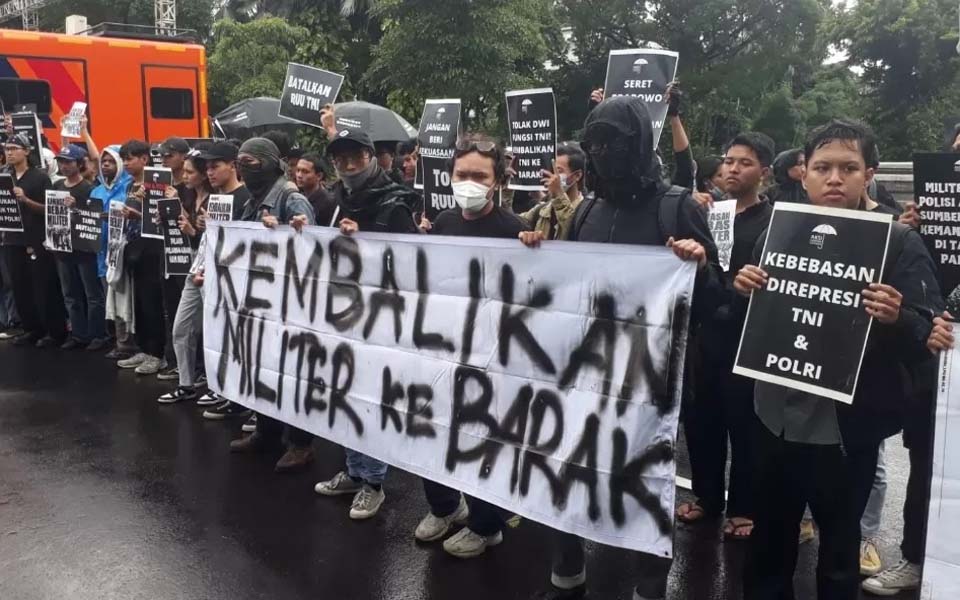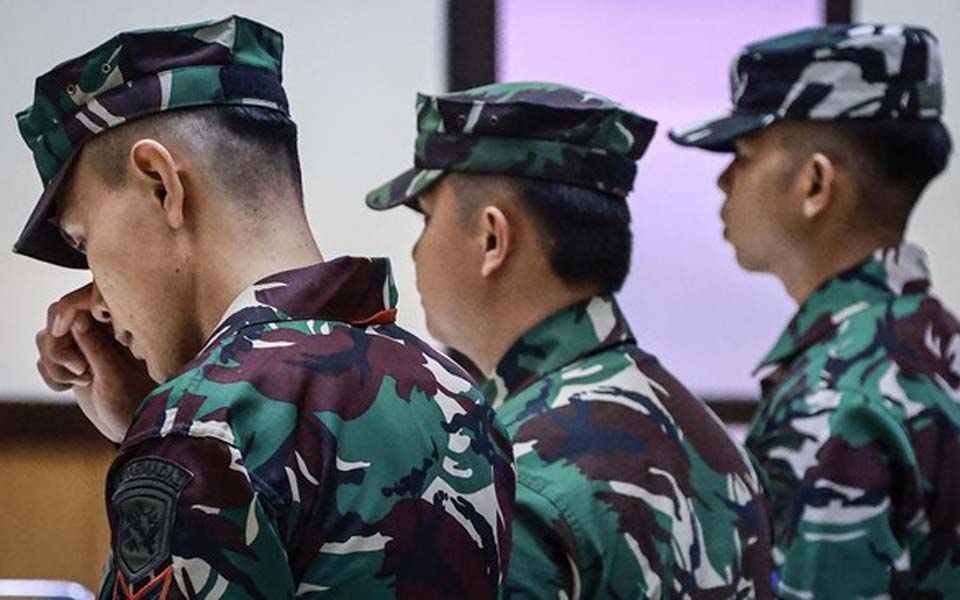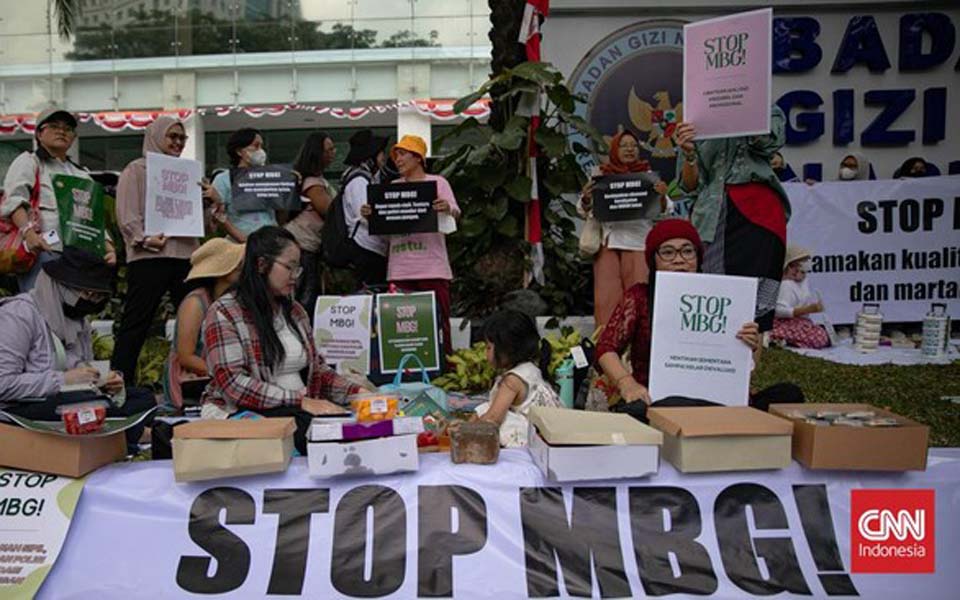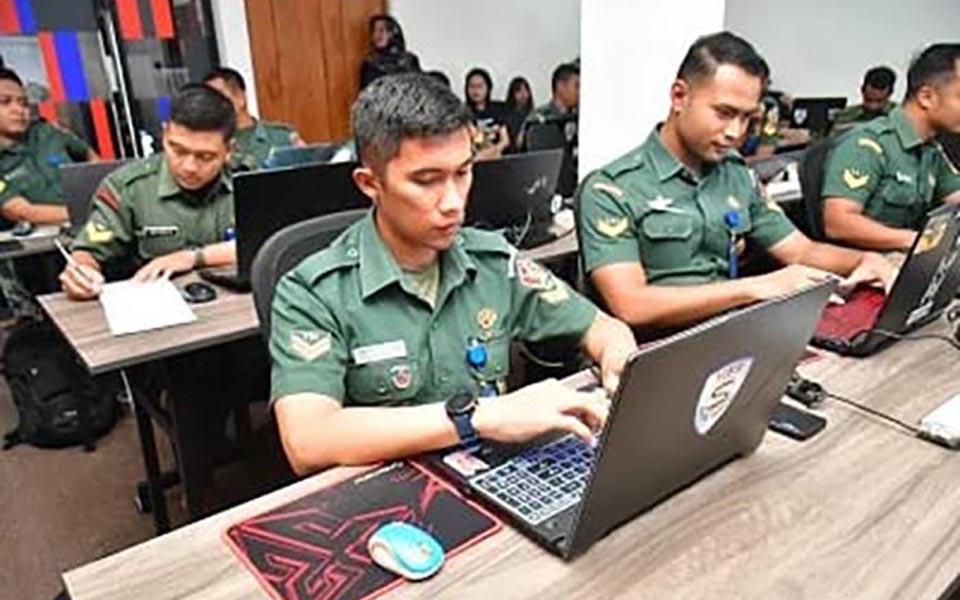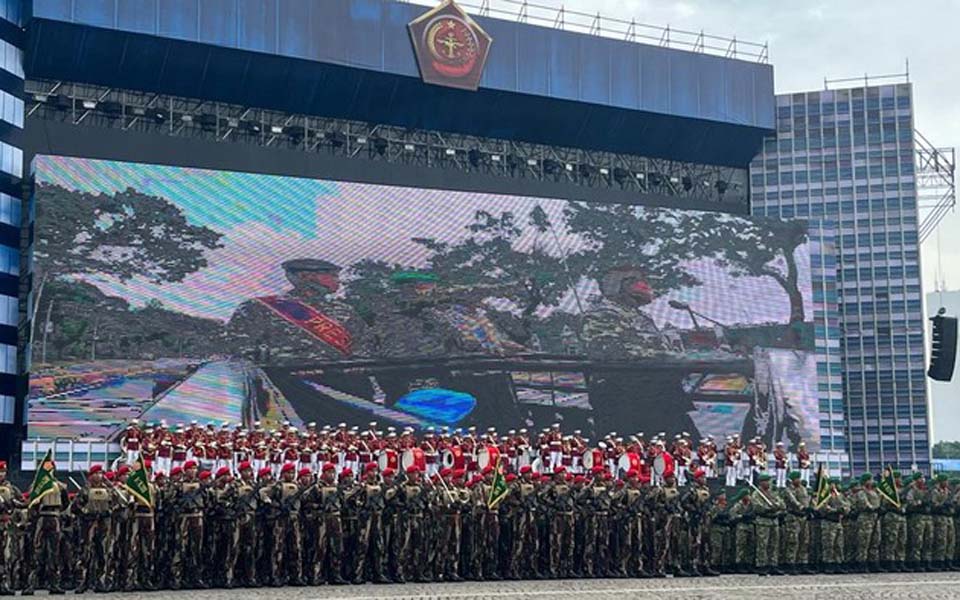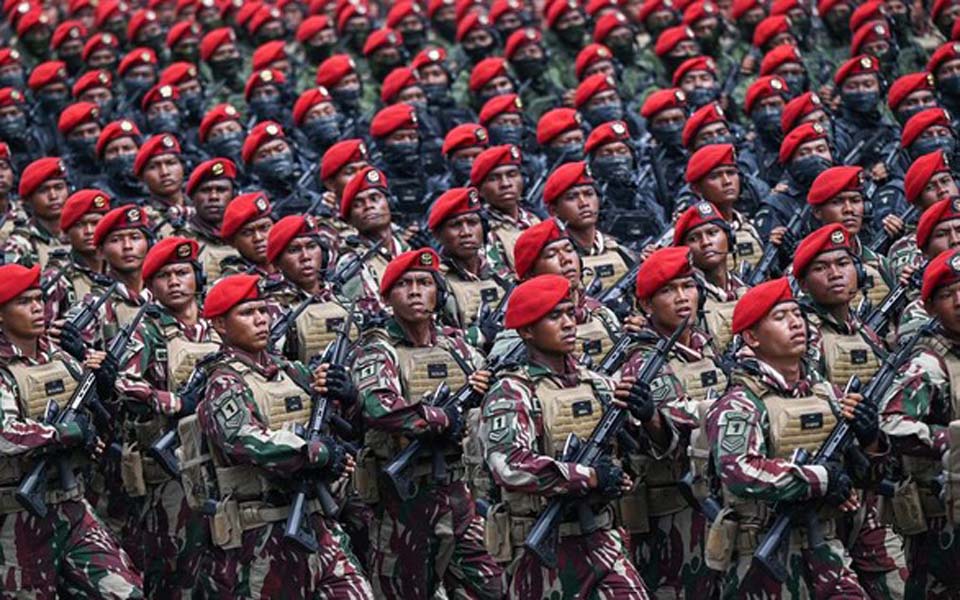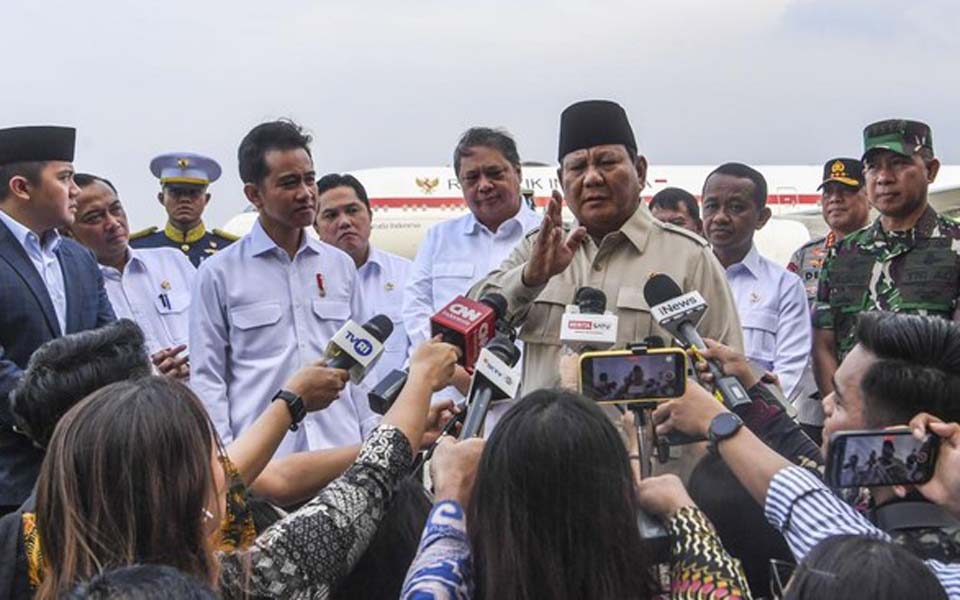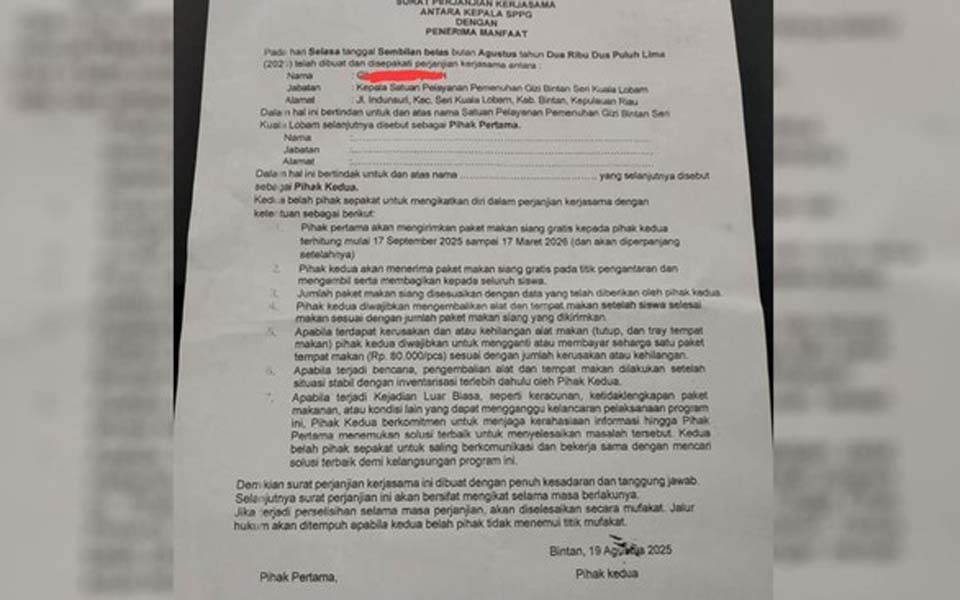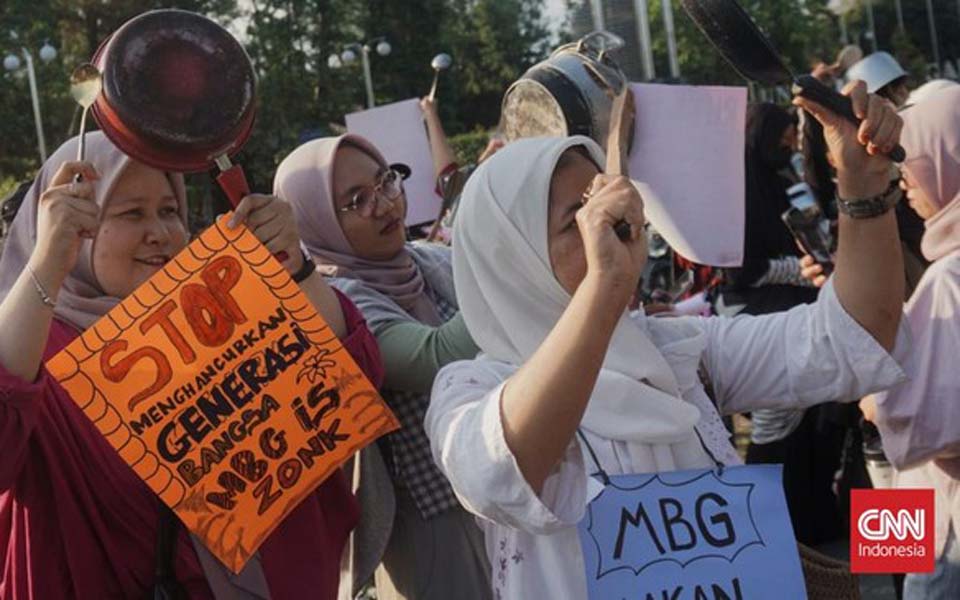Jakarta – Indonesia Corruption Watch (ICW) believes that the involvement of the Indonesian Military (TNI) in the distribution and implementation of the free nutritious meals (MBG) program in schools is evidence of the absence of a clear separation between civilian and military space.
"Ultimately, there is no separation between civilian and military space", said ICW research division staff member Eva Nurcahyani at a discussion held in the Tebet area of South Jakarta on Tuesday April 29.
Nurcahyani said that at the start of the implementation of the MBG program, the presence of TNI members, especially Babinsa (village supervisory non-commissioned officers), were observed directly supervising the process in the field.
"In several schools, at the beginning of the initial implementation of the MBG, it turned out that TNI members or what is usually called Babinsa in the area came down to oversee the implementation of the MBG", she explained.
According to Nurcahyani, this is an important note because it concerns the basic principles of child protection. She referred to the UN convention on the rights of the child which states that children must be in an environment free from intimidation, including psychological pressure that can arise from a military presence.
"In fact, in the context of children, we know that there is a convention on the rights of the child, where children have the right to a space where they are not psychologically intimidated", she explained.
Furthermore, Nurcahyani emphasised that children should not be involved in activities that contain military elements, as stated in the principles of international child protection. "This raises the question, where is the separation between military work and civilian spaces?" she said.
ICW is urging that the implementation of social and educational programs, including the MBG program, to be carried out within civil corridors to ensure maximum protection for children as a vulnerable group.
Waste of state budget
ICW also criticised the MBG program for failing to meet nutritional standards and because it has the potential to be a waste of the state budget.
Nurcahyani said that based on ICW's findings in the field, the composition and quality of food served in the MBG program often does not meet the nutritional standards that should be met.
"In some of our findings, from the planned menu to its composition, it does not meet nutritional standards. Yet, at the beginning, the goal of the MBG program was to eradicate stunting and meet the nutritional needs of children", said Nurcahyani.
Of even more concern, continued Nurcahyani, is there were reports from a number of teachers stating that the food provided was not fit for consumption, and was even thrown away because it was not eaten by the students.
"A lot of the food was not fit for consumption and there are stories from teachers that the food is not eaten but just thrown away", she said.
According to Nurcahyani, this situation is ironic given the budget efficiency narrative that has been echoed by the government, especially by President Prabowo Subianto, who initiated the MBG program.
"That as a policy this is from Bapak [Mr] Prabowo is also a note. They said there is [budget] efficiency and so on, but with this implementation, it actually wastes money", she said.
ICW is therefore encouraging the government to conduct a comprehensive evaluation of the MBG program so that a program aimed at improving children's nutrition does not become a burden on state finances without maximum results.
Damaging school ecosystem
ICW also believes that MBG program has not considered its impact on the school ecosystem. One of the issues highlighted is the decline in school canteen revenue. Nurcahyani said that the MBG program has had a direct impact on the decline in school canteen income.
Through interviews with canteen staff in a number of areas, it was discovered that the MBG program had shifted the role of school canteens without any prior effort to involve canteens.
"The implementation of the MBG did not look in detail at how the school ecosystem existed before the MBG, it was not considered. There should have at least been cooperation or embracing the canteens that were already together there, at schools", said Nurcahyani.
In addition, the MBG program is also considered to have added a new burden on teachers involved in distributing and supervising food which is also said to have disrupted their focus on teaching.
"There is also an additional burden on teachers which ultimately disrupts concentration or the teaching and learning process at school", said Nurcahyani.
Another problem has also arisen regarding accessibility and inclusivity in special schools (SLB), such as what happened at the Jakarta State SLB, one of the first schools to implement MBG.
Nurcahyani revealed that the food menu provided was standardised without considering the special nutritional needs of students with disabilities.
"Yet we know that we have to pay attention to the nutritional needs of friends with mental and physical disabilities and so on. In terms of nutritional composition, then in terms of individual needs, they are different from one individual to another", she said.
ICW is calling on the government to evaluate the design of the MBG program to be more adaptive to the reality of schools and the diverse needs of students, and to ensure that the policy supports, rather than damages, the education ecosystem.
ICW's findings are based on the results of direct monitoring at several locations where the MBG program was implemented in schools in Jakarta. This monitoring took place between March 12 and April 24.
– By Nicholas Ryan Aditya, Danu Damarjati, Robertus Belarminus and Dani Prabowo
[Slightly abridged translation by James Balowski based on three articles by Kompas.com on April 29. The original title of the lead article was "ICW Kritik Keterlibatan TNI dalam Distribusi MBG di Sekolah-sekolah".]





